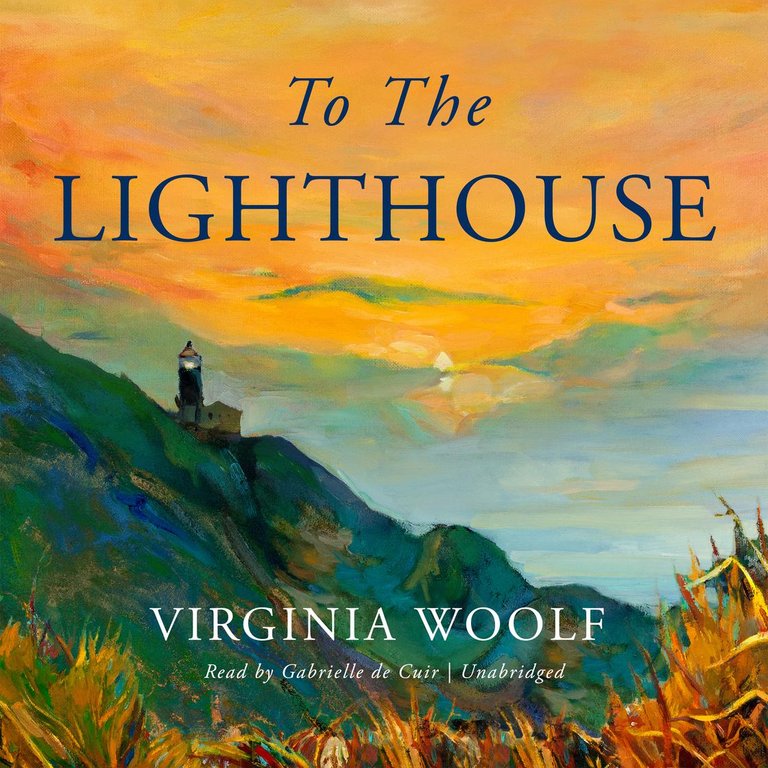I like the metaphors that are being layered here, and I've noticed that Woolf is doing some very clever things in this first section of the book. "The Window" being a singular scene through which we learn everything about the Ramsays and their boarders, everything feels as though it is in freeze frame, even when there is action like people walking around.
Lily's painting seems to mirror the same technique that Woolf herself is using in a post-impressionism style, casting blobs of light and shadowy characters with very thin and translucent layers of thoughts and memories onto the page. Even Mrs. Ramsay herself is becoming only a vague image of a mother (specifically Woolf's own mother, it is quite obvious) and transforming from this purple wedge of a concentrated core into the lighthouse itself for a moment. She is a central beacon in the family.
Mr. Ramsay is mirrored by his sons, especially James, who wants desperately to go to the lighthouse and hates him when his father tells him no. Mr. Ramsay himself can't help but spot Mrs. Ramsay as she becomes an embodiment of the lighthouse and has to stop his walking and try to approach her, but realizes he can't. Not now.
All the while, the lighthouse both figuratively and literally paints the characters onto the scene with strokes of light, primarily through the very titular window itself. It begins illuminating their rooms and their thoughts as they search through their relationships for meaning.
Part 2 was my favourite, especially the way it captured the passage of time and the house’s decay, which is just so haunting and beautiful, even if it was totally different than other parts. The writing wasn’t the easiest to follow (understatement), but it was worth the effort, I would say. The ending with Lily’s artistic vision coming together was really moving and tied everything nicely (“I have had my vision”). Overall, I really liked Lily's character. It was a beautifully written exploration of time, memory, art, gender roles, subjectivity on personal experiences, and the search for meaning (and probably many more). Oh, and the meaning of The Lighthouse, that it’s different for everyone, and James realizing his view of it was different, and it’s never accurate. It’s not just what you think it is, but it’s more and could be different and mean more than just one thing, etc.
